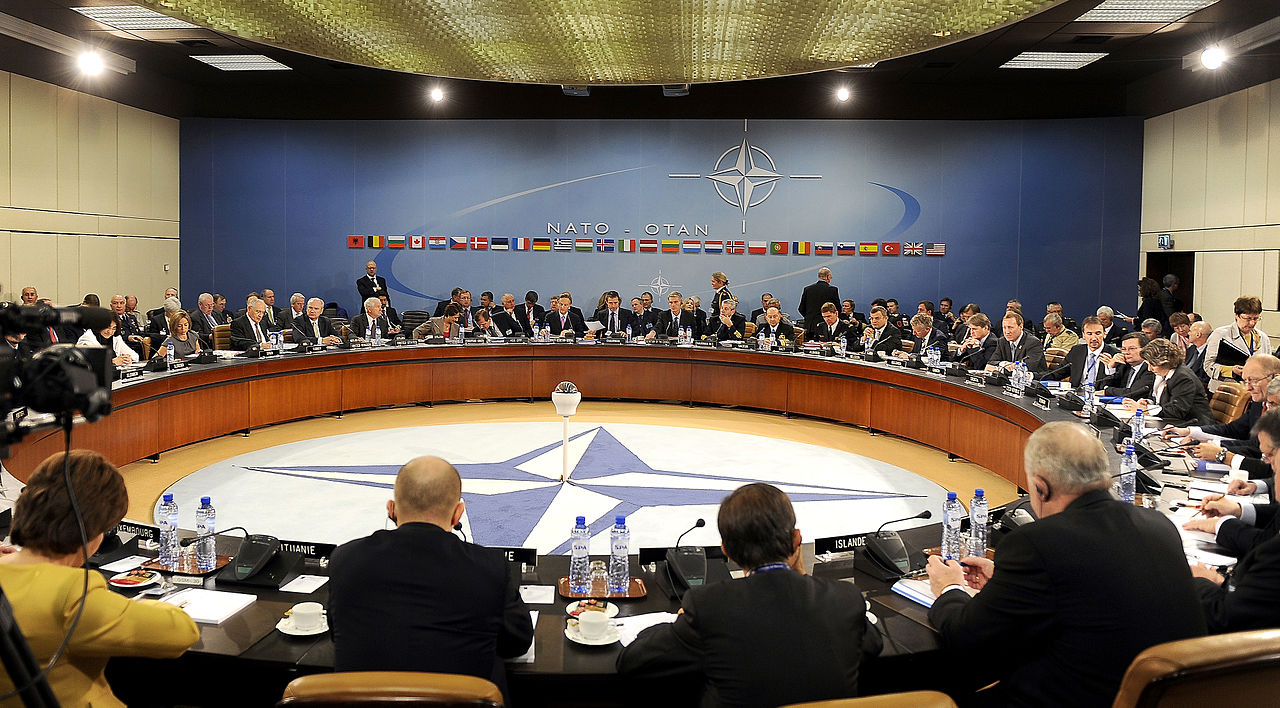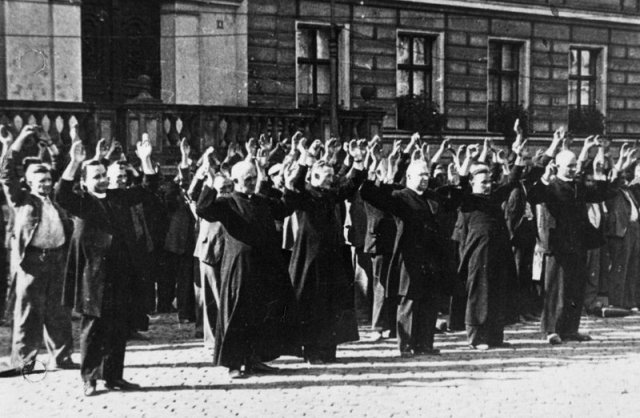Russia vs NATO. Can Poland count on Germany? (Part 2)

Why does Britain, which is significantly farther from Ukraine, care about arming Kiev more than Germany? Poles are observing this attentively, as they have to ask themselves the following question: How would our neighbors react in the event of Russian aggression against Poland?
Piotr Semka
(…)
GROW FLOWERS, NOT CONTEMPT
The argument that Ukraine is not a NATO member unlike Poland is used to downplay the question why the RAF transporters bypassed Germany. But it’s just a word game. Why does Britain, which is significantly farther from Ukraine, care about arming Kiev more than Germany? Poles are observing this attentively, as they have to ask themselves the following question: How would our neighbors react in the event of Russian aggression against Poland? We are the ones that have borders with Putin’s state, not them. And we already have a very disturbing precedent in the history of Polish-German relations in recent years. In January 2017, as a result of Donald Trump’s decision, but supported by congressmen from both the Democratic and Republican parties, US Army forces were sent to Poland and the Baltic states in significant numbers. The prime minister of Brandenburg Dietmar Woidke, who also acted as a special plenipotentiary for Polish-German affairs, reacted very sharply at that time. Ships with US soldiers docked in the German port of Bremerhaven…and on the basis of German-American agreements, they legally passed through Germany to the border with Poland, going through the Land of Brandenburg. There were no doubts as to the legality of such a passage of troops from one NATO country through the territory of another in order to strengthen the defense of the alliance’s third countries, i.e. Poland and the Baltic Republic.
And yet Dietmar Woidke, a politician of the Social Democratic Party, publicly expressed his concern about the US Army brigade’s passage via his state to Poland. “The tanks traveling back and forth on both sides of the border are not helping us solve our problems”, said the Prime Minister of Brandenburg during the New Year party at the Chamber of Crafts in Cottbus. – I believe that despite all the problems, we should seek dialogue with Russia. I hope they will all hold steady”. The statements of the SPD politician were so sharp that they caused a reaction of Ingo Senftleben, head of the CDU parliamentary caucus in the Brandenburg parliament. The Christian Democrat politician expressed his surprise that Woidke, ex officio responsible for contacts with Poland in the federal government “values dialogue with Russian businessmen more than Poland’s security”.
The declaration of an important German politician is a dangerous precedent, but the sociological tendencies in the country of our neighbors across the Oder are much more disturbing. The polls of the American opinion research center, Pew Research Center, which for many years have been studying the attitude of the societies of NATO countries to the vision of their states’ responses to Soviet aggression, are quite instructive. A study from January 2015 showed that as much as 58 % of Germans are against using the Bundeswehr to help NATO allies in case of an attack by Moscow.
In contrast, 56 % of Americans would support sending their troops to countries attacked by Russia. In Canada, this ratio is 53 %. In subsequent research from 2020, as many as 63 % of Germans declared their reluctance to help a country attacked by Russia.
All this information adds up to an even more disturbing picture if we realize the underinvestment of the Bundeswehr and problems with the military equipment. It is only now that we can see the effects of the reduction in defense spending that began in 1988. Donald Trump’s attempts to put the matter very toughly, having called on Berlin to increase defense spending, was met with a hysterical reaction and suggestions that it was the Republican president who wanted to push Germany out of NATO and leave Europe defenseless to Russia. What’s significant, no one used Trump’s appeals to debate Germany’s attitude to a possible military confrontation between Russia and the alliance.
American diplomats indicated with irritation that Germany wanted to be a large Switzerland of sorts aiming to maintain its internal security, as the Helvetians did during the last war, hoping that all war-capable parties would be interested in the existence of a zone of trade and financial investments. This tactic could be considered rational until the first Russian aggression against a neighboring country, i.e. until 2008 – the invasion of Georgia by the Russian army. However, neither the attack on Tbilisi nor the annexation of Crimea changed anything. The declaration on the ban on the export of weapons to Ukraine was, along with the decision to continue the Nord Stream 2 project, putting their own interests above the security of NATO neighbors and partners.
The two largest German parties – the SPD and the CDU – are able to spend huge sums on social campaigns to raise awareness of the dangers of climate change or on the integration of foreigners into German society. Meanwhile, over the past 30 years there have been no noticeable campaigns reminding Germany that joining NATO not only benefits from the American nuclear umbrella, but also the duty to fight in defense of NATO’s allies. Indeed, Germany sent its troops to Lithuania and it was an example of taking allied solidarity seriously. Similarly, we must gratefully remember the sale of Leopard tanks to Poland, even if it concerns a bit worn-out equipment. But situations such as the threat to Ukraine should make Germany think in terms of defending freedom and security, and not in the application of dogmatic pacifism. Germany – the world’s fourth largest exporter of arms – sends its weapons to many countries that pursue a very strict foreign policy, also with the use of military forces. This was the case with Turkey and Saudi Arabia.
UNBEARABLE LIGHTNESS OF BEING
I remember in the mid-1990s, when I became interested in the German vision of post-war history, my attention was drawn to special historical notebooks of “Der Spiegel” about the Cold War. In Poland, we treated the history of the struggle between the West and the Soviet camp as the history of the defense of freedom and democracy by Western states, led by the USA. In the publication of “Spiegel” I found a completely different vision. The long-term confrontation was presented as a rivalry between two insane forces, embraced by equally militaristic aspirations. There was a subtext in this that the divided Germany was a green pasture over which, in the event of war, elephants from the east and west would stampede over, equally disregarding the interests of ordinary Germans.
It was a very clear departure from the idea formulated by Konrad Adenauer and which was respected until the beginning of the 1980s. The older generation of Germans remembered that Germany was in fact quickly released – four years after the war – from more advanced denazification in the name of the need to embed German hard brick in the NATO wall. Since the 1968 revolt, the notion that freedom is not a privilege but a state that requires an effort to defend itself has slowly faded away. The prestige of officers was systematically dropping and more and more young people, despite the abolition of compulsory conscription, considered the Bundeswehr embarrassing.
It caused a bitter paradox. The army attracted fewer and fewer young people who wanted to make a career, and those who volunteered were more and more often representatives of the extreme right. The prestige of the teaching profession declined as more and more educators had to capitulate to either pacifism or immigrant dislike of the German uniform.
Can such a state of affairs be indifferent to the country neighboring Germany? During the disputes between the government of Mateusz Morawiecki and Brussels, German journalists repeated ad nauseam that since Poland joined the EU club, it must adhere to enigmatically defined European values. This principle doesn’t work the other way around, however. Few in Poland point out to the Federal Republic that they were accepted by the Allies due to fear of an invasion from the east. Once again, the age old principle is confirmed: size matters.
This article was published in February 2022 in “Do Rzeczy” magazine.



